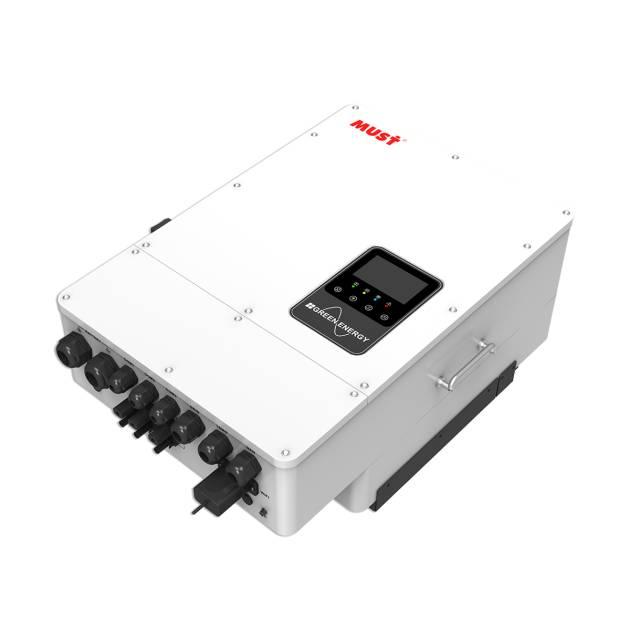Chinese inverter manufacturer Must Energy has expanded its European offer through the launch of a three-phase hybrid inverter.
The PH1100 EU series comprises three models with a rated power of 8 kW, 10 kW and 12 kW, respectively.
The new products feature a battery voltage of 48 V and a voltage range of 40 V to 60 V. Maximum discharging current varies in line with each model’s rated power, with the 8 kW device discharging 190 A current, 10 kW discharging 210 A and 12 kW discharging 240 A.
Their maximum DC input ranges from 10.4 kW to 15.6 kW. Furthermore, the series has a rated PV input voltage of 550 V, a maximum DC voltage of 800 V, and a start-up voltage of 160 V. The minimum voltage for grid connection is 310 V and the full load DC voltage range runs from 350 V to 650 V. Each inverter has a Maximum Power Point Tracking (MPPT) range of 200-600 V and is fitted with two MPP trackers.
The wall-mounted inverter weighs 35 kg and has a size of 444 mm x 654.2 mm x 359.2 mm. It has an operating temperature range of -20 C to 60 C, with derating at temperatures greater than 45 C.
Must Energy is offering a five-year warranty on the PH1100 EU Series and AC coupling for retrofitting existing solar systems. The inverter supports parallel battery connections and can be used to store energy from a diesel generator.
Other integrated features include PV arc fault detection, anti-islanding protection, PV string input reverse polarity protection, insulation resistor detection, a residual current monitoring unit, output over current protection, and output shorted protection.
“We are thrilled to introduce the PH1100 EU Series,” a Must Energy spokesperson said. “This groundbreaking hybrid solar inverter showcases our unwavering commitment to delivering advanced solutions for renewable energy utilization. Its exceptional efficiency, versatility and intelligent features make it an ideal choice for a wide range of applications.”
This content is protected by copyright and may not be reused. If you want to cooperate with us and would like to reuse some of our content, please contact: editors@pv-magazine.com.



1 comment
By submitting this form you agree to pv magazine using your data for the purposes of publishing your comment.
Your personal data will only be disclosed or otherwise transmitted to third parties for the purposes of spam filtering or if this is necessary for technical maintenance of the website. Any other transfer to third parties will not take place unless this is justified on the basis of applicable data protection regulations or if pv magazine is legally obliged to do so.
You may revoke this consent at any time with effect for the future, in which case your personal data will be deleted immediately. Otherwise, your data will be deleted if pv magazine has processed your request or the purpose of data storage is fulfilled.
Further information on data privacy can be found in our Data Protection Policy.